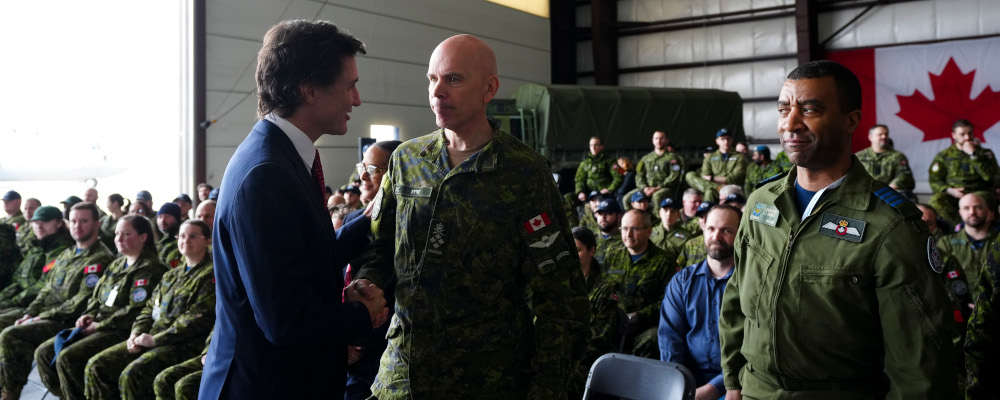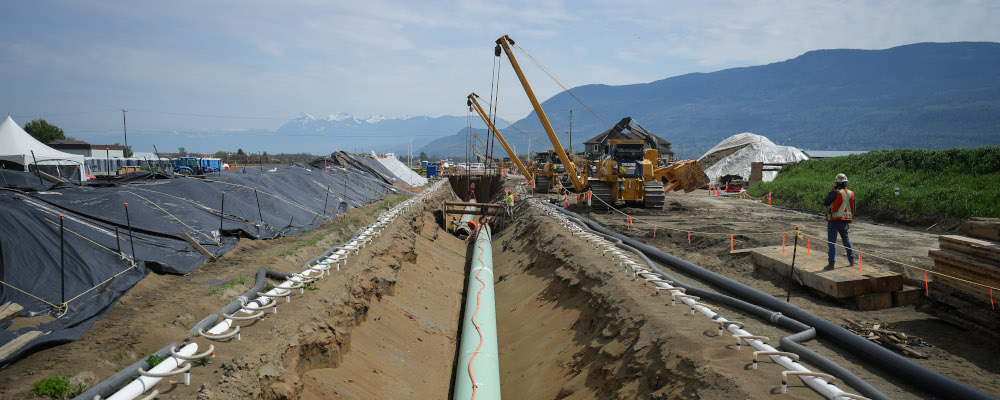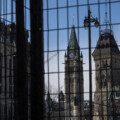Justice Marie-Josee Hogue’s just-released foreign interference report provides more transparency and details beyond the opaque conclusions offered by “independent” special rapporteur David Johnston almost precisely a year ago.
Earlier this afternoon, the first report of the Public Inquiry into Foreign Interference in Federal Electoral Processes and Democratic Institutions (PIFI) was released, landing on the desks of journalists and analysts with a quieter thud than many would have expected.
I had the advantage of being in the tense Ottawa media lockup, at the National Archives building, to review the report in the morning hours prior to its lunchtime release. There were few signs of shock or surprise in the room of journalists, as the pages containing the commission’s first round of findings were anxiously turned.
Both the Johnston and PIFI reports confirm many of the generalities that Canadians have long suspected.

There is in fact “ample evidence” that foreign interference occurred in the 2019 and 2021 elections, potentially impacting some votes and even possibly results in a handful of ridings, but without impacting the overall election outcome. China is seen as the main actor seeking to affect our electoral outcomes by helping preferred candidates obtain office. It is, as Commissioner Justice Hogue puts it, the “most persistent and sophisticated foreign interference threat to Canada”. The People’s Republic of China’s interference tools of choice are illegal campaign donations, bribery, blackmail, threats, cyber-attacks, and mis- and disinformation campaigns.
Some of these tools, describes the report, were used against Conservative MP Kenny Chiu during the 2021 election, when Chinese Canadians were encouraged by state proxies not to vote for the Vancouver politician. Chiu would ultimately lose his seat. The report says “false narratives” possibly contributed to his loss.
India and Iran are considered secondary but increasingly threatening players but seem more concerned with monitoring and stifling criticism and dissent among their diasporas in Canada than seeing the election of sympathetic candidates to Canada’s Parliament. Meanwhile, overt Russian election meddling could not be found.
CSIS is told to sharpen up its delivery of intelligence to government—getting into the details that catch governments’ attention—and should likely be empowered to share more broadly with other players, such as opposition parties. Government and the civil service is told to learn, digest and share intelligence between its branches. And on Hogue went, reviewing the often repeated messages of the failings of the Canadian national security apparatus. She’ll leave the majority and details of her recommendations for later this year when she issues her second report.
The difference between the work of Johnston and Hogue comes down to the latter having a far more transparent process, one that yielded more details for the public to consider on the pathway back to rebuilding trust in our democratic institutions. And Hogue will tell you she is worried about that trust, writing that hostile states succeeded in their interference because some Canadians now have “reduced trust in Canada’s democratic process.” She calls this the “greatest harm” this country has suffered from foreign interference.
While Johnston spoke vaguely about threats to Canadian democracy and the need to confront the growing danger of foreign interference, Hogue is more forceful, concluding that interference “likely impacted some votes” and that the covert actions of foreign states “undermined the right of voters to have an electoral ecosystem free from coercion or covert influence.” She calls this a “stain on our electoral process.”
Johnston’s poring over classified documents at his desk enabled him to muster such insightful observations as that there were “irregularities” surrounding the nomination of then soon-to-be Liberal MP Han Dong in the Toronto riding of Don Valley North. The former governor general then coupled this with statements absolving Dong, Prime Minister Trudeau, and other Liberal party heavy-hitters from wilful wrong-doing. Beyond the fact that he never even sat down to speak with Dong, the trouble of course is that we have no clue what documents were on his desk, or what other information he had on hand that enabled him to make such reassuring statements. Such a “just trust me” story—whether it’s told by a respected objective figure or a former ski companion of the prime minister in power—is simply not a pathway to the restoration of public trust and political engagement in a modern world where an infuriated public increasingly distrusts the words leaving the lips of the elite governing classes. The public is hungry for the unedited truth they deserve.
As Tom Korski, managing editor of Blacklock’s Reporter, commented at the time of Johnston’s report, “The day has passed when the archbishop or the bank president or the royal family gets to stand there and say, ‘There’s nothing to see here, I’m not taking any more questions.” “We are in an age that is so far past that. People don’t buy it anymore. It’s not because they’re cynical. It’s because they’re informed,” he said.
Commissioner Hogue, on the other hand, insisted Dong and other players give official public and private testimony to lawyers. The benefit to Canadians was that they could hear what went on at his nomination for themselves. Testimony described several busloads of teenage Chinese national students armed with false credentials, who didn’t even live in Dong’s riding, arriving at his nomination. CSIS said they believed they had been pressured by the PRC’s Toronto consulate to vote for Dong. Hogue describes a “well-grounded suspicion” that these international students were “tied to the PRC.” “Given that DVN [Don Valley North] was considered a ‘safe’ Liberal seat, this would likely not have impacted which party won the seat. It could, however, have impacted who was elected to Parliament,” she writes. She stresses that “this is significant”.
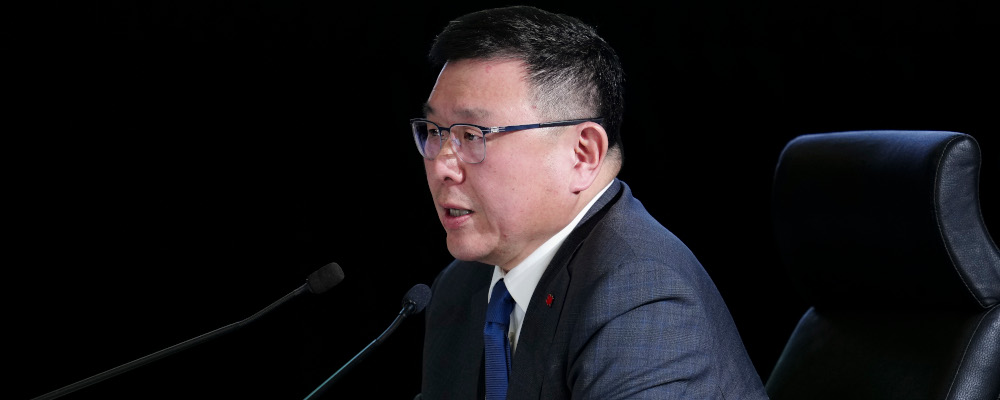
Like Johnston, Hogue found no evidence to conclude Dong was a witting benefactor of this PRC boosting. Nor does Hogue suggest that the prime minister and his team were negligent or deceitful in how they managed information coming to them about these nomination concerns—though she does challenge whether the prime minister did enough to circle back to the issue after the election.
However, testimony from Prime Minister Trudeau and his key party election organizers revealed to Canadians that the arrival of busloads of unidentified groups is par for the course of our nominations processes.
As such, beyond Johnston’s “trust me” story of irregularities, Hogue has now exposed to the public the weaknesses in party nominations. She concludes nomination contests can amount to “gateways for foreign states who wish to interfere in our democratic process.” She promises recommendations to come to tighten things up.
The pattern of additional detail and more forceful statements beyond rapporteur Johnston is repeated throughout Hogue’s work. She rightly points out that “foreign interference is like crime.” Both are “always present,” “evolve,” and are “impossible to eradicate.” However, she insists, it must be “managed” and “discouraged.” Like runaway crime, foreign interference shakes citizens’ faith in their state. It requires frank public discussion and swift policy action.
“The cat is now out of the proverbial bag,” says Hogue about Canadians now being made aware of the foreign interference their country is currently facing. The result, she says, has meant hostile ideological states have been successful when it comes to one of their primary goals. Our confidence in our electoral process has been shaken. It will take time to rebuild.
It is an absolute shame that so much time was wasted at Johnston’s desk of secret documents before getting to Hogue’s public hearings. The second report on foreign interference will focus on how we respond to this foreign interference in our elections. But it leaves Canadians a scant few months to do much with the recommendations, before we head back to the polls in 2025.
Recommended for You
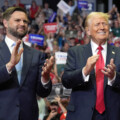
The Week in Polling: Young Canadians delay milestones due to high costs, Liberals lose the youth vote, and most Canadians fear a Trump-Vance White House

Ginny Roth: J.D. Vance, Pierre Poilievre, and how they slice their economic pie

David Polansky: As President Biden leaves the race, will the Democratic Party hodgepodge hold?

RCMP spending to protect MPs may have risen 112% since 2018, as Canadian politicians face greater rise in threats



